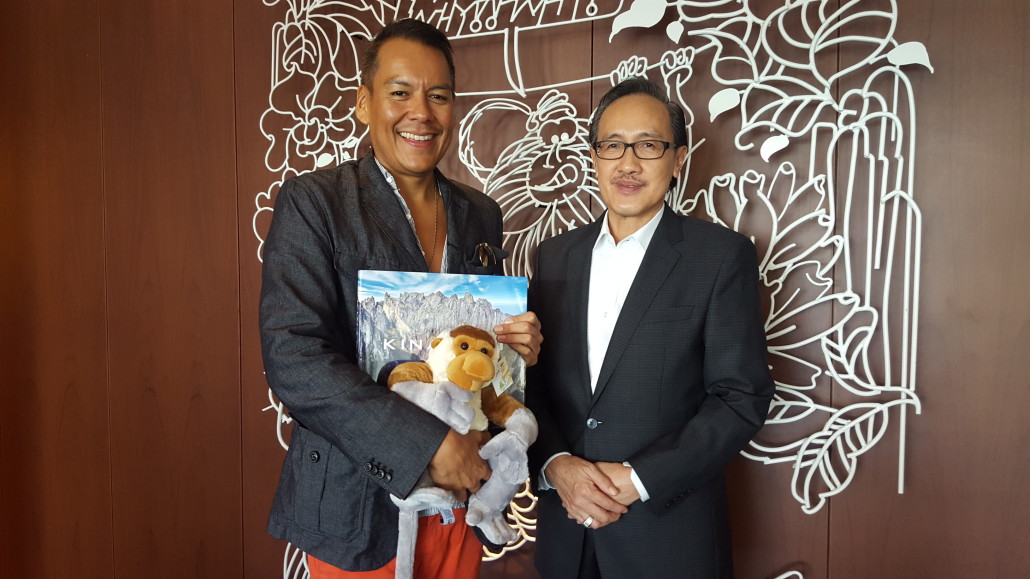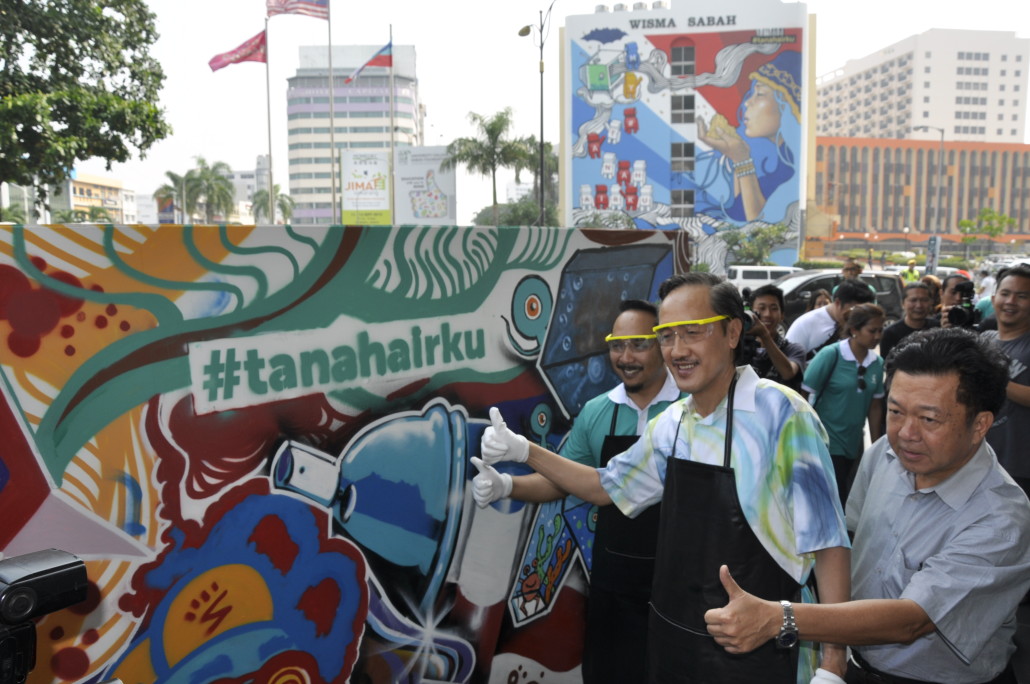jessica2015-10-20T09:17:39+08:00Kota Kinabalu: Ikatan Setia Kawan Watawan Malaysia-Indonesia (ISWAMI) brought together some 50 journalists of the print, broadcast and electronic media from both countries to Sabah for the first time. It was held to foster closer professional and people-to-people ties themed "Mengharmoniskan Masyarakat Di-Perbatasan".
This has averted for three years, incidents of Indonesians demonstrating outside the Malaysian Embassy in Jakarta, burning flags over some misunderstood sensitive issues in the past from mistreatment of workers to cultural art practice, food and others.
The Sabah State Government through Sabah Tourism hosted a dinner for the occasion at a leading hotel recently which was graced by Socio-Cultural Advisor of the Malaysian Government, Tan Sri Dr Rais Yatim.
Sabah Tourism Chairman Datuk Joniston Bangkuai welcomed the Indonesian journalists, led by Saiful Hadi, Antara News Agency Managing Director and Chief Editor at the function.
Joniston offered them opportunities to win tourism stay package prizes in a competition to be organised in future for them to write about Sabah's attractions.
With the region blanketed in haze, some journalists from Indonesia, particularly from the North, East and West Kalimantan were glad to be here for the cleaner air.
Besides the haze, other sensitive border issues like Sipadan and Ligitan being part of Malaysia and the claim on Ambalat, migrant workers, oppression of migrants, smuggling, illegal trade, mining, fishing, human trafficking, terrorism, narcotics, to disputes over music, dance, arts like 'batik', food heritage origin have led to some misunderstanding between Kuala Lumpur and Jakarta.
Hence, journalists from both countries have an important role to play to promote understanding and cooperation for better people-to-people ties.
It was for this purpose that ISWAMI Malaysia was formed in Jan 8, 2008 and officially registered on Sept 29, 2010 to forge better ties between journalists of the two Nusantara (Malay Archipelago) countries.
Rais reiterated in his address to journalists from Indonesia and Malaysia that the Malay language which unifies them with more than 300 million speakers as a people who originate from a common ethnic stock, is an international language that can spread further as they continue to develop the language using its own available terminologies first, before borrowing words from other language, particularly English, as is the common practice now.
He regretted that some leaders are not putting enough emphasis or in agreement with the vision.
Rais recalled that English Lord Devlin's dicta that while the law must be upheld, it is humanity that must live with the law. Meaning, while both countries uphold national interests and borders, people's interests within the colonial demarcated boundaries should be taken into consideration rather than what Kuala Lumpur or Jakarta see fit or desire from their remote governance perspectives.
With the advent of the Asean Economic Community, it is more poignant that both countries look seriously into the problems face by citizens living along or near the national boundaries.
The Malaysian and Indonesian journalists in a group photo. He promised to look into a complaint by Anthon Joy, an Indonesian journalist from Tarakan, that people from Desa Krayan in the North Kalimantan Province were stopped by the Malaysian police from buying foodstuff like rice from the Malaysian side, reducing them to eating tapioca. Anthon called on journalists to help highlight the issue for practical resolution.
He stressed that other Asean countries are watching whether Indonesia and Malaysia could click well together despite their border disputes or differences, without resorting to negative actions. When both countries cooperate well, they would be respected and saluted, otherwise they would not taken seriously.
Rais said the border issues between Malaysia and Indonesia are less than 10, hence not serious to jeopardise relationship when compared to the hundreds and thousands of issues, the United States face along its borders with Mexico and Canada respectively which today still remain unsolved.
He listed eight of the outstanding issues to ponder, calling for a win-win situation rather than a win-lose view.
He likened Malaysia and Indonesia to Britain and the United States, linked by people, culture, history and a common language, albeit with slight differences.
He cautioned against osmosis of western influence like electronic cigarettes, and he hinted that Malaysia and Indonesia should work together to check such harmful influence if tests now being conducted show that it is harmful to health.
The mass media of both countries can play a positive role in promoting understanding and empathy between both countries, and not provoke issues that inflame the public in line with the theme "Watawan Penjalin Harmoni".
In a dialogue session moderated by Datuk Dr Chamil Wariya, CEO of the Malaysia Press Institute, Indonesian Embassy Military Attaché Kolonel Yudhi Candra Jaya described the relationship between the two countries' armed forces as very close and cordial, despite unsolved border issues.
Unlike Indonesia, some Indonesian journalists regretted that Malaysia has no single dominant organisation to represent all Malaysian journalists for them to liase with, which was acknowledged Chamil.
Source: Daily Express






